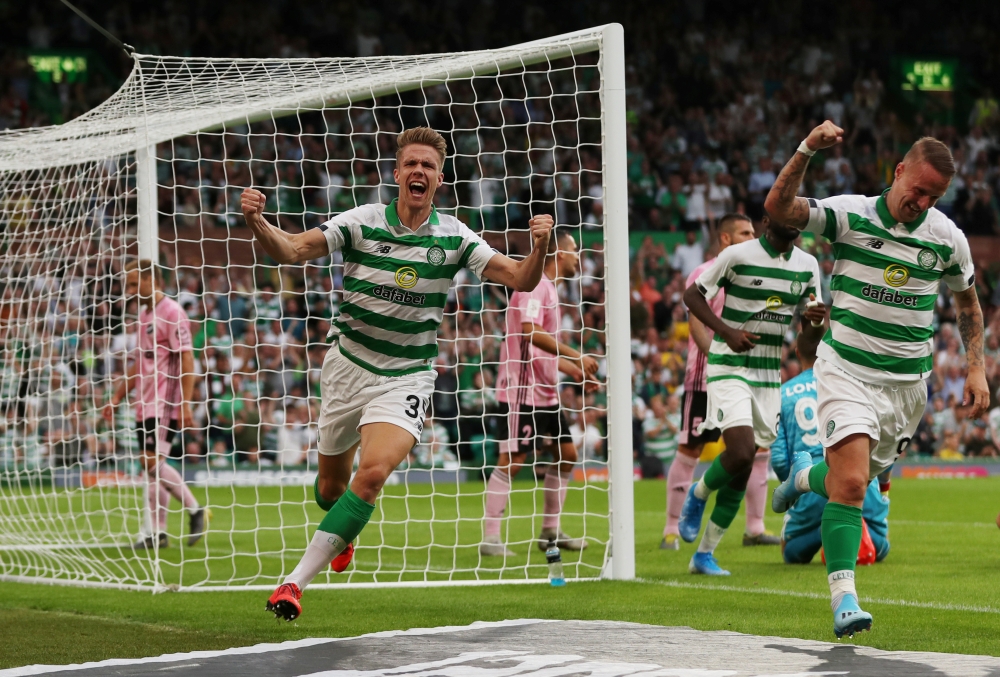For soccer teams involved in the qualifying rounds of European competition, there is very little time to enjoy the summer, and for Celtic, the serious business started on July 9 when they began their Champions League qualifying journey with a trip to Sarajevo.
A 5-2 aggregate victory over the Bosnian champions set up their Second Qualifying Round tie against Nomme Kalju of Estonia and in an impressive display at Celtic Park last week, Neil Lennon’s side established a formidable lead, winning 5-0 to put the tie virtually out of reach for the Estonians. Tuesday’s return leg now appears to be a formality in terms of the overall result, but there is still a lot for Celtic to play for, besides confirming their place in the Third Round.
Last week’s game saw the welcome return to action of striker Leigh Griffiths, who hadn’t made a competitive appearance in front of his home fans since last September, and besides the emotion of the occasion, his return to the team and to goalscoring form is great news for Lennon, who is the latest manager challenged with the task of keeping Celtic top of the Scottish football pile.
With a resurgent Rangers closing the gap every year, Lennon will be hard-pressed to match the success that previous head coach Brendan Rodgers brought to the club, but for all the silverware that Rodgers amassed domestically, significant progress in European competition was something that eluded the former Liverpool boss and is one area where Lennon can break new ground.
The task of turning domestic dominance into European success is one that many Scottish managers have struggled with. A Scottish team hasn’t competed in a European Final since Rangers lost to Zenit St Petersburg in the 2007-08 UEFA Cup Final, and there hasn’t been a European trophy claimed by a Scottish team since Alex Ferguson’s Aberdeen won the Cup Winners’ Cup in 1983.
Celtic, of course, have a particularly strong association with European football, being the first UK team to win the European Cup, under the legendary Jock Stein, in 1967. They also reached the final in 1970 and the semi-finals in 1972 and 1974. But since the mid 1970s, European success has been rare. Martin O’Neill’s Celtic side reached the 2003 UEFA Cup Final, losing to Porto, and were knocked out of the competition at the quarter-final stage in the following year, but Celtic haven’t reached the knock-out stages of the Champions League since 2013.
Celtic are clear favourites for the trip to Estonia, being rated as a -526 chance by BetCris, with Nomme Kalju at +978 and the draw at +504, but Lennon will be wary of allowing any complacency to creep in, with two more rounds to go before they reach the Champions League Group Stage. Celtic fans will also be hoping that their side take a ruthless approach to this game, as they try to build momentum for the challenges that lie ahead.















